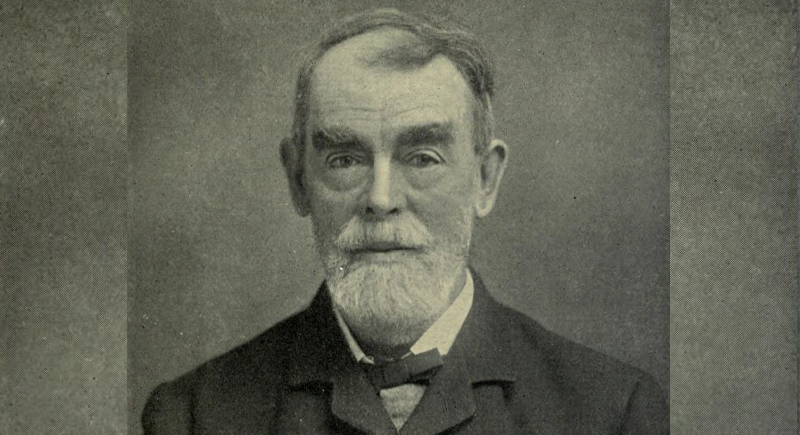16 Things Jesus Never Actually Said (But Everyone Thinks He Did)
Think you’ve got your Bible quotes down? Over time, a surprising number of phrases have been pinned on Jesus that never came out of his mouth—at least, not in any gospel. Some of these lines sound holy enough to fool Sunday school teachers. This list clears things up with a wink and a nudge.
“God helps those who help themselves.”

Credit: Wikimedia Commons
This one’s straight out of Benjamin Franklin’s Poor Richard’s Almanack, not Matthew, Mark, Luke, or John. The Bible celebrates God’s help for the helpless. Psalm 121:2 says, “My help comes from the Lord.” Jesus focused on helping the poor, the sick, and the outcast—folks who couldn’t “help themselves” if they tried. Let’s leave this one to motivational posters.
“Cleanliness is next to godliness.”

Credit: Getty Images
While the Old Testament had many laws about ritual purity, Jesus often flipped those ideas. He even said, “You clean the outside of the cup and dish, but inside you are full of greed and wickedness” (Luke 11:39). Clean hands are fine, but Jesus cared a lot more about a clean heart.
“This too shall pass.”

Credit: Wikimedia Commons
People love quoting this when life gets messy. It’s comforting, but it’s not from Jesus or the Bible. Historians trace it back to Persian poetry. While the Bible does talk about enduring trials and how suffering eventually leads to hope (see Romans 5:3-5), Jesus didn’t drop this neat little phrase.
“Spare the rod, spoil the child.”

Credit: Wikimedia Commons
This classic parenting quote is often mistaken for Scripture—but it’s actually from a 17th-century poem by Samuel Butler. The actual Bible verse, Proverbs 13:24, says, “Whoever spares the rod hates their children.” Discipline is discussed in the Bible, but using this phrase like a heavenly command is creative parenting, not a quote from Christ.
“Money is the root of all evil.”

Credit: Canva
This one’s almost right, but not quite. The actual verse is 1 Timothy 6:10: “For the love of money is a root of all kinds of evil.” Jesus did warn that money can be spiritually dangerous. But cash itself is not inherently evil. It’s the obsession, greed, and misplaced trust in wealth that gets called out.
“The lion shall lie down with the lamb.”

Credit: flickr
Isaiah 11:6 actually says, “The wolf will live with the lamb.” The lion was likely a mix-up with Isaiah 65:25, which mentions the lion eating straw. The general message of peace is true, but next time you see a lion and lamb together on a Christmas card, know that the Bible didn’t entirely script it that way.
“To thine own self be true.”

Credit: Wikimedia Commons
If this sounds Shakespearean, it’s because it is. It comes from Hamlet, in which Polonius, not Jesus, says this. The Bible’s focus isn’t on staying true to yourself but on denying yourself. Jesus said in Luke 9:23, “Whoever wants to be my disciple must deny themselves and take up their cross daily.”
“Blessed are the meek, for they shall inherit the Earth—and be doormats.”

Credit: pexels
Jesus said the first part in Matthew 5:5, yet the second is total nonsense. That sarcastic add-on gets tossed around as if meekness equals weakness. But in Jesus’ world, meekness meant strength under control—gentle but powerful—like a lion on a leash. He praised meekness as a virtue, not a flaw.
“God won’t give you more than you can handle.”

Credit: iStockphoto
This one’s a misinterpretation of 1 Corinthians 10:13, which talks about temptation. “He will not let you be tempted beyond what you can bear.” Life will give you more than you can handle. Jesus even said, “In this world, you will have trouble” (John 16:33). The Bible doesn’t promise an easy load—it promises God’s presence through it.
“Follow your heart.”

Credit: Rawpixel
This is sweet advice if you’re writing a Disney movie, but it’s questionable theology. Jesus never said this. In fact, Jeremiah 17:9 warns, “The heart is deceitful above all things.” The Bible actually tells people to guard their hearts, not follow them blindly. Jesus was way more about faith than feelings.
“Preach the Gospel at all times; use words if necessary.”

Credit: pexels
You’ll hear this in churches, small groups, and Christian coffee shops. In Mark 16:15, he said, “Go into all the world and preach the gospel to all creation.” Actions matter, sure, but words are the point of preaching. The early disciples weren’t walking around mime-performing the resurrection. They spoke boldly, even under persecution.
“Let go and let God.”

Credit: flickr
While this one encourages surrender—which is biblical—it oversimplifies how faith works. Proverbs 3:5-6 offers something better: “Trust in the Lord with all your heart and lean not on your own understanding.” Jesus taught active trust instead of passive waiting. He didn’t tell people to “let go”—he told them to follow, pray, forgive, and serve.
“Love means never having to say you’re sorry.”

Credit: pexels
This romantic gem came from the 1970 film Love Story, not Jesus. Jesus taught the opposite. Forgiveness was central to his message, and he emphasized repentance as a key part of love. Luke 17:4 says, “Even if they sin against you seven times in a day…you must forgive them.” That sounds like a lot of apologies!
“We are all God’s children.”

Credit: flickr
Yes, everyone is God’s creation, but John 1:12 clarifies who gets the title of “child”: “To all who did receive him…he gave the right to become children of God.” Jesus often spoke about being born again and adopted into God’s family through belief. So, while God loves everyone, not everyone automatically enters that spiritual family.
“Hate the sin, love the sinner.”

Credit: Wikimedia Commons
This line gets tossed around like it came straight from the red letters, but it does not appear in the Gospels. The wording is usually traced to later Christian thinkers, especially Augustine, who expressed similar ideas in Latin centuries after Jesus. While Jesus preached compassion, this exact phrase belongs to church history, not Scripture.
“God works in mysterious ways.”

Credit: Getty Images
It sounds like something Jesus might have said in a parable, but this sentence never appears in the New Testament. The closest idea comes from Isaiah 55:8, which says God’s ways are higher than human ways, and the popular phrasing comes from an 18th-century hymn. It’s poetic, just not a Jesus quote.